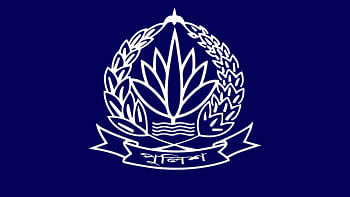10 Things You Didn't Know About Adnan Al Rajeev

1. What inspired you to become a director?
I kind of fell into it! I went to school in Darjeeling, and came back in 2003. The first film I saw when I came back was Mostafa Sarwar Farooki's 'Bachelor'. And later, I also met him through a mutual friend of my sister's. Since I was looking for work, my sister suggested approaching Sarwar Farooki to work with him, and she put in a good word for me. I met him, and immediately liked his approach. He was different. Back in those days, usually around 3-4 people used to assist each director as assistants; he already had seven assistance directors (affectionately known as “bhai-brothers”). I had no idea about film making yet, and he warned me that this was not a piece of cake and that it would require a lot of hard work and dedication. He asked if I was really serious about it, I said “yes” instantly, and he asked me to start the following month. I started working with him for the mega serial called '69'. I worked with him directly for 5 years. It was a tremendously rewarding experience, and I learnt a lot. In those five years, I understood whether I wanted to be a director for fiction productions or for television advertisements. And I am the latter, at least for the time being.
2. So, are these two separate fields? Fiction/ television drama and ad making?
They are sort of like siblings. They require similar skills but lie in different worlds. Making advertisements enable a director to work with top of the line equipment and resources, thanks to a fat budget, and he can really explore his creativity in terms of visuals. Due to elements of marketing and brand communications embedded within, it appeals to certain directors more than fiction work.
3. What was your first production as a director?
That would be “Uccho toro podharto biggan,” a drama which I made in 2009 for Desh TV. Iftekhar Ahmed Fami, basically a director, acted in it upon request and the story revolved around a guy who goes into a coma, and walks around unable to communicate with anyone until he meets a girl who was also in a coma from the same bus crash. I was very happy with the response I received from this production. My first advertisement was also in 2009, for 'Western Union Money Transfer', and I made this working with Unitrend Ltd.
4. What is your most favourite production of all time?
This is really difficult to answer. I have not seen anything that I can really call one most favourite production. But two films that I really admire are Requiem for a Dream (2000) and The Tracey Fragments (2007).
5. Who have you enjoyed working with the most?
A kid named Zara really impressed me, and I really enjoyed working with her. She was only 6 years old at the time and I she was in the Grameenphone commercial I made last year. She was really amazing, she could deliver the exact mood, expression look and feel that I wanted, I was amazed that she even understood what I was saying.
6. What is your most embarrassing memory as a director? Did you ever make a mess of things?
Once when I was shooting a commercial, my mind was elsewhere. I was in 'breakup phase', and my broken heart did not allow me to concentrate on anything. The commercial at hand was based on a very nice flowery story, but while shooting, I had no clue what I was doing, so the 1st and 2nd day of shooting was horrible, the 3rd day brought me back to my senses, I realized that I am doing something wrong, breaking the trust of people who have laid their faith in me. I did what I could to salvage the production, but by then 70% of shooting was done. Thankfully, it wasn't so bad that it was scrapped, but I learnt a big lesson. I knew it could have been better. People liked it, but they didn't love it! And neither did I.
7. In your opinion, what is the most important thing missing from the overall media today?
Two things; one, a proper education system is missing for film makers in Bangladesh, and two, we need more professional directors of photography or cinematographers.
8. Television directors are seen to try their hand at making movies. Do you think television direction is a starting point to get to movies?
I think so. Television offers opportunity to learn, and since there are no other opportunities to learn about filmmaking, we see directors coming up from the television scene. But, a film is a film - regardless of the medium, fiction productions are fiction productions. If you know how to tell a story through the camera, you'll be able to do it on any screen.
9. What would be your word of advice for those who want to enter the world of making TV dramas?
Patience! My advice is you have to be patient. You have to stick to what you want. You have to know where you want to end up.
10. Where do you see yourself ten years from now? Do you always want to be a director?
Yes I always want to be a director. But, maybe after 10 years I will be making films!
Interviewed by Zakir Mushtaque

 For all latest news, follow The Daily Star's Google News channel.
For all latest news, follow The Daily Star's Google News channel. 



Comments